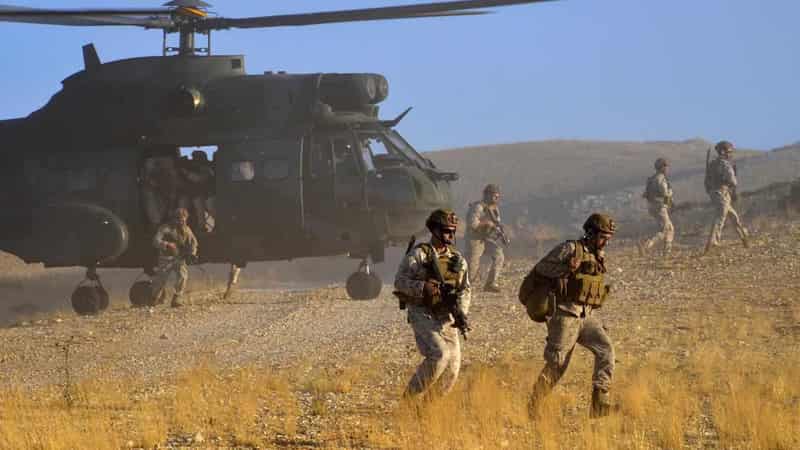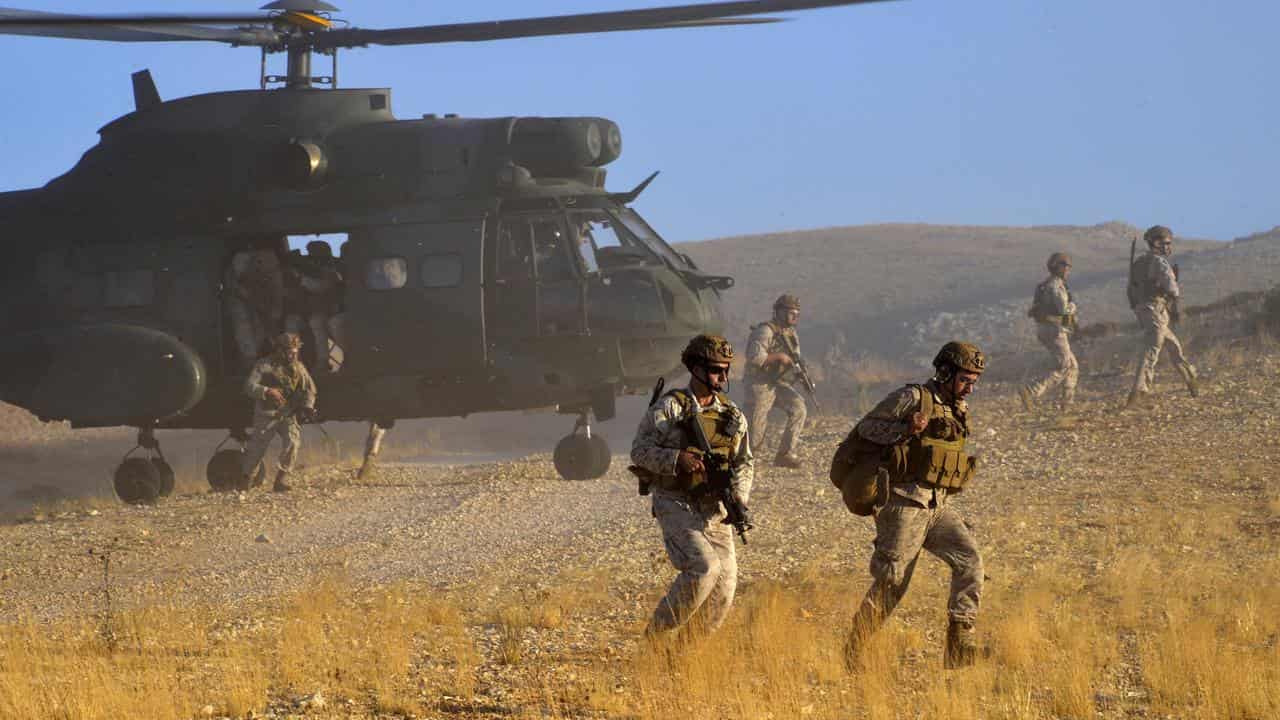
British Prime Minister Rishi Sunak says the country is putting its defence industry on a “war footing” by increasing defence spending to 2.5 per cent of GDP by the end of the decade, and pledged to send arms worth 500 million pounds ($A960 million) to Ukraine.
The prime minister described the increase as the “biggest strengthening of our national defence for a generation.”
“In a world that is the most dangerous it has been since the end of the Cold War, we cannot be complacent," Sunak said at a news briefing alongside NATO Secretary General Jens Stoltenberg during a visit to Poland.
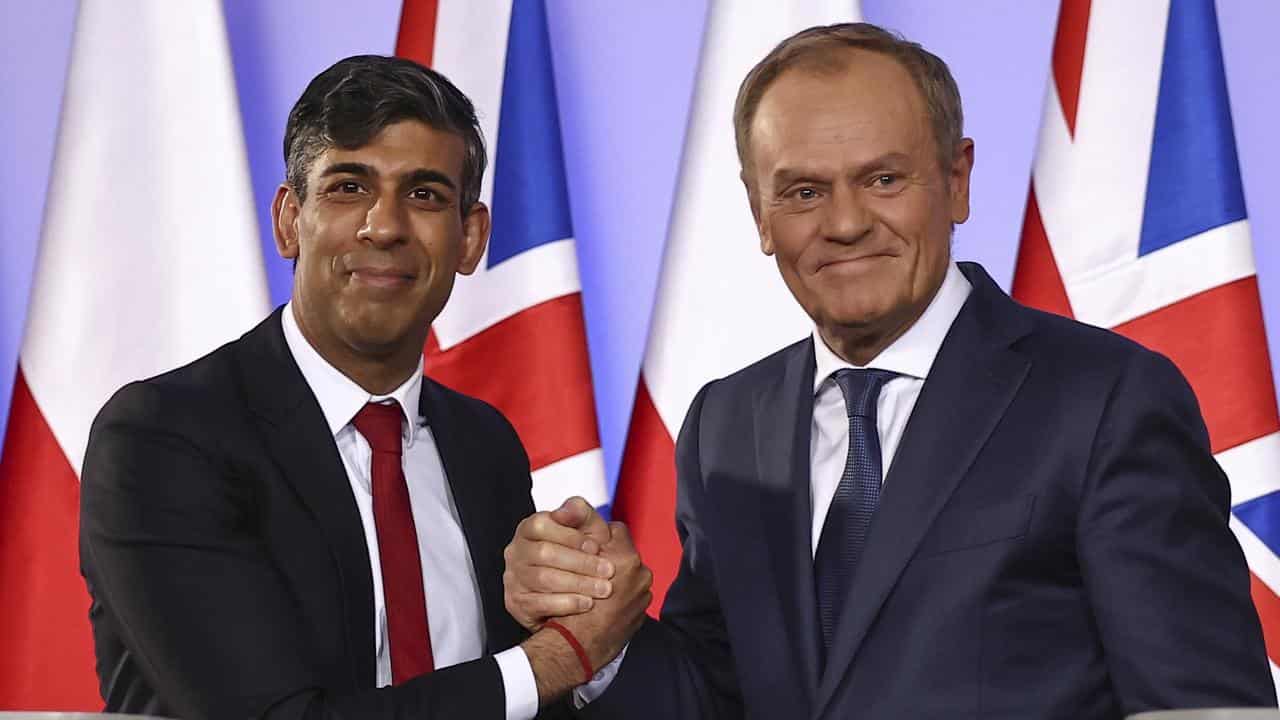
“As our adversaries align, we must do more to defend our country, our interests and our values."
Sunak promised an extra 75 billion pounds ($A144 billion) in defence spending over the next six years. The target of 2.5 per cent of GDP spending was a re-commitment of a target set by former Prime Minister Boris Johnson in 2022.
A decade ago, NATO leaders agreed to commit two per cent of GDP to defence spending. Russia’s full-scale invasion of Ukraine has given that effort new urgency. Britain has spent above that over the past decade but never higher than 2.35 per cent in 2020, according to NATO data.
“We will put the UK’s own defence industry on a war footing,” Sunak told British troops serving on NATO's eastern front near Ukraine.
“One of the central lessons of the war in Ukraine is that we need deeper stockpiles of munitions, and for industry to be able to replenish them more quickly.”
UK official figures show that defence spending last year was about 55.5 billion pounds ($A106.5 billion). NATO data shows that amounting to about 2.07 per cent of the UK’s GDP, ahead of countries including France and Germany but behind Poland, the US, Estonia and others.
“It's time for us to re-arm,” Sunak told a news briefing alongside Polish Prime Minister Donald Tusk, noting that Poland spends a larger percentage of its GDP on defence than any NATO ally.
Sunak said that next year Britain would deploy its Typhoon fighter jets to Poland to help police its skies. Poland, which borders Ukraine, has seen several incursions of its airspace since Russia invaded Ukraine in 2022.
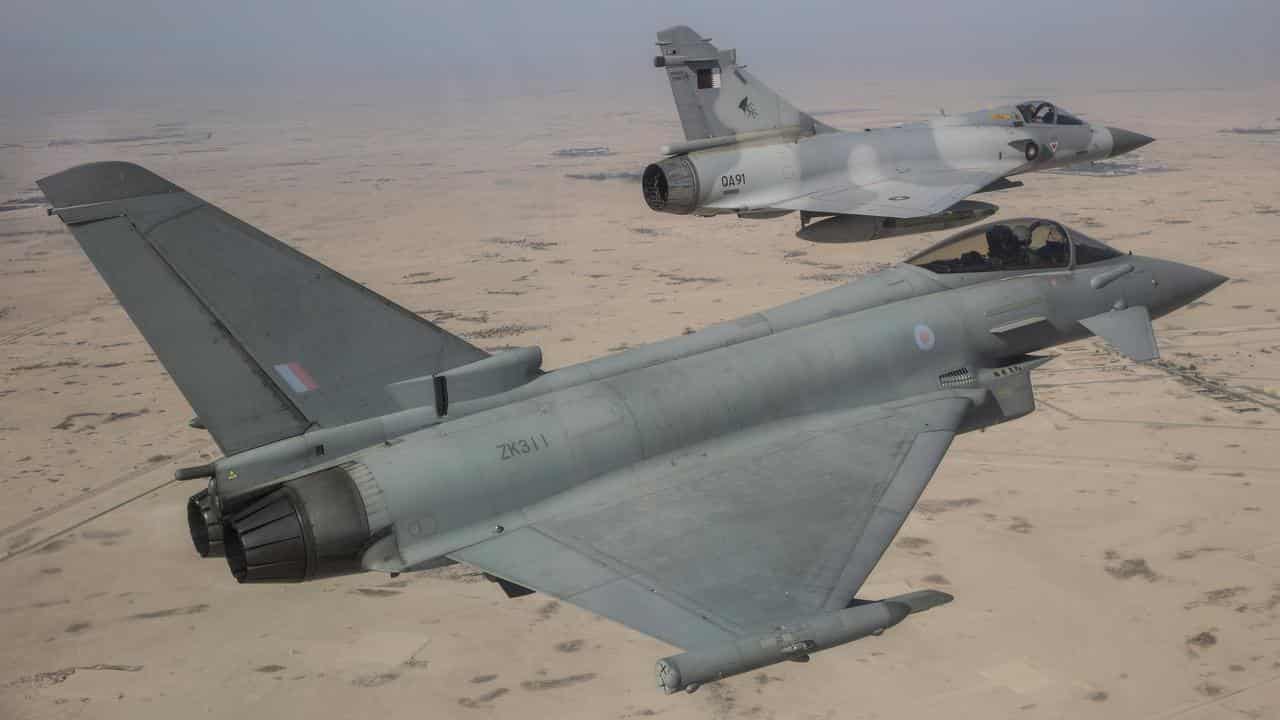
Sunak also spoke with Ukrainian President Volodymyr Zelenskiy to confirm the new assistance to Ukraine and "assure him of the UK’s steadfast support for Ukraine’s defence against Russia’s brutal and expansionist ambitions,” Sunak's office said.
UK authorities said the commitment included 400 vehicles, 60 boats, 1600 munitions and four million rounds of ammunition, at a time when Ukraine is struggling to hold off advancing Russian forces on the eastern front line.
The shipment will include British Storm Shadow long-range missiles, which have a range of about 240km and have proved effective at hitting Russian targets.
Zelenskiy has pleaded for greater international assistance, warning that his country will lose the war without it.
Britain's announcement came three days after the US House of Representatives approved $US61 billion ($A94 billion) in new aid for Ukraine. The Senate was voting on the package Tuesday.
The commander of Ukraine's National Guard has said he anticipates Russian troops will strike in unexpected parts of the front when they conduct their summer offensive and could try to advance on Kharkiv.
Ukraine's second largest city has been pounded by missiles and drones in recent weeks, but Kyiv's forces will be prepared to thwart any assault, Oleksandr Pivnenko said.
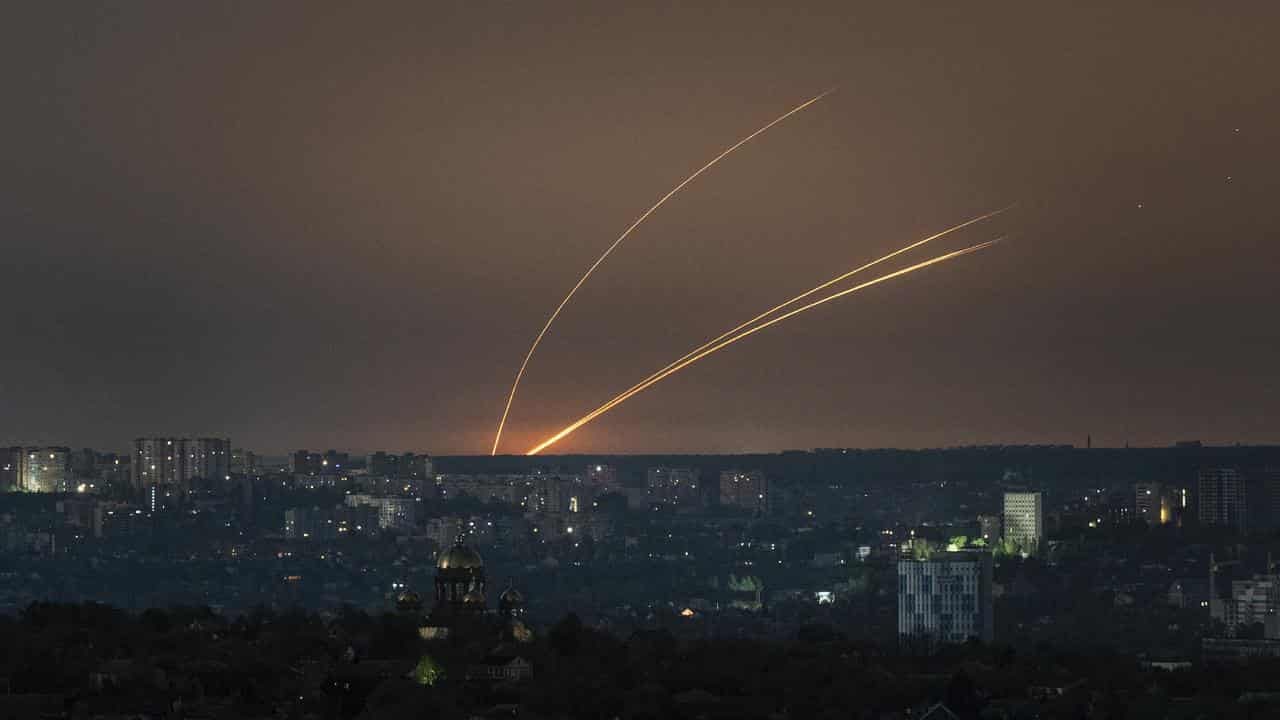
"We are getting ready. Yes, the enemy will give us unpleasant surprises. It will operate in areas where we do not expect it. But it will not achieve its goal," he told the Ukrainian news outlet Liga.net.
Russia has been inching forward in the east, but long-delayed US military assistance is finally expected to be approved this week and reach Ukraine soon, relieving critical ammunition shortages and air defences.
Ukrainian officials say they expect a Russian offensive in late spring or summer, and that they believe Moscow wants to seize the strategically important eastern town of Chasiv Yar by May 9 when it marks Soviet Victory Day in World War Two.
